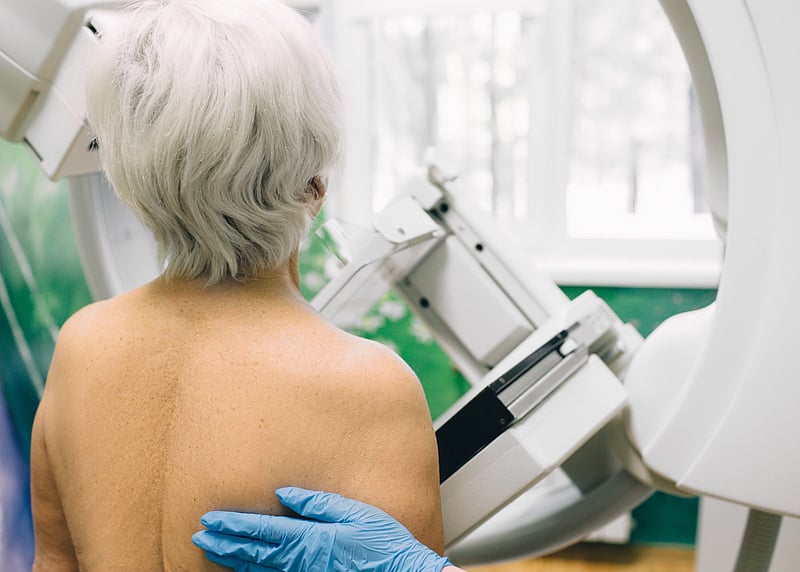155 SE 2nd Main St Hillsboro, OR 97123
Thank you for your patience!**
Now offering Flu Shots. Walk-ins available!
We also offer "Monoclonal Antibodies" treatment for patients with Covid-19.
Get Healthy!

- Posted September 5, 2023
AI Equals Human Radiologists at Interpreting Breast Cancer Scans
Another study is showing that artificial intelligence (AI) is as good as a specialist doctor in spotting breast cancer on a mammogram. But don't expect computers to take over the job from humans, experts say.
In a study that compared the mammography-reading skills of an AI tool with those of more than 500 medical professionals, researchers found that it was basically a tie.
On average, both humans and AI caught about 90% of breast tumors, and correctly gave an all-clear to just over three-quarters of mammograms from women without cancer.
That meant neither was perfect, and experts said it's still unclear how AI will ultimately fit into breast cancer screening.
Mammography has long been a routine experience for women. But mammography-reading may actually be the most challenging task in radiology, said Dr. Liane Philpotts, a professor of radiology at Yale School of Medicine in New Haven, Conn.
That's because a mammogram is an old-fashioned X-ray — although in the United States, Philpotts noted, better-performing digital 3D mammography is increasingly replacing the conventional kind.
Detecting a tumor on standard mammograms means hunting for subtle patterns — something that has proved difficult even for the best AI, said Philpotts, who wrote an editorial published with the new findings in the September issue of Radiology.
"In this study, we're still talking about imperfect sensitivity," Philpotts said, referring to the tumor detection rate. "The fact that AI can match radiologists is good."
But ideally, she said, you'd want it to be even better.
No one, however, is saying that AI should replace radiologists in mammography-reading. Instead, it might help them do the job more efficiently and accurately, said Dr. Mozziyar Etemadi, an assistant professor at Northwestern University Feinberg School of Medicine in Chicago.
Etemadi, who is not a radiologist, studies AI's potential role in medicine. The simple fact, he said, is that "humans have a certain level of missing stuff," and AI could help.
It might, for example, give mammograms a first pass, flagging ones that look suspicious so radiologists can prioritize them, he said. And in any given mammogram, AI might highlight areas that seem abnormal.
The new findings, Etemadi said, are in line with what previous, similar studies have suggested: When an AI tool is asked to read a mammogram, its performance is on par with doctors'.
But the broader questions, Etemadi said, are how does AI fit into a "real-world workflow," and does it ultimately benefit the women undergoing screening?
The new study compared a commercially available AI tool — Lunit's INSIGHT MMG — against the mammography-reading prowess of 552 U.K. radiologists, radiographers and breast clinicians.
Those health professionals had read a set of 120 "challenging" mammograms as part of a routine performance assessment, sometime between 2018 and 2021. The researchers had the AI tool read those same mammograms in 2022.
Overall, the performance was strikingly similar. On average, humans and AI had nearly identical rates of sensitivity (how often they correctly identified tumors) and specificity (how often they correctly deemed a cancer-free mammogram to be negative).
"Our study provides strong evidence that AI for breast cancer screening performs as well as human readers," said lead researcher Yan Chen, a professor at the University of Nottingham School of Medicine in the United Kingdom.
The findings may not, however, be "exactly reproducible" in the United States, said Dr. Stamatia Destounis of Elizabeth Wende Breast Care in Rochester, N.Y.
The mammograms used in the study were 2D, she noted, while 3D mammography is common in the United States.
And in the United Kingdom, women undergo screening between ages 50 and 70. In the United States, screening is recommended at age 40 — when women are premenopausal and typically have denser breast tissue, Destounis said. Dense breast tissue makes mammography-reading even tougher.
Philpotts said that AI tools that work with 3D mammography are needed, and under development.
She also pointed to another layer of complexity: Once women start having mammograms regularly, radiologists compare the latest image with prior ones, to look for changes. An AI tool that can analyze "priors," Philpotts said, would be helpful.
All of the experts agreed, though, that AI is the wave of the future in mammography screening.
An ongoing clinical trial in Sweden is the first to directly test "AI-supported" mammography against conventional reading by humans alone. Last month, researchers reported an interim analysis from the trial, showing that AI has so far helped radiologists catch 20% more breast cancers.
Destounis said that kind of evidence, from a clinical trial, is important. She added, though, that studies also need to include women of all ages, races and ethnicities to reflect the real world.
The current study was funded by Lunit, maker of the AI tool the researchers tested.
More information
The nonprofit Susan G. Komen has more on mammography screening.
SOURCES: Yan Chen, PhD, professor, digital screening, University of Nottingham School of Medicine, U.K.; Stamatia Destounis, MD, managing partner, Elizabeth Wende Breast Care, Rochester, N.Y., member, public information committee, Radiological Society of North America, Oakbrook, Ill.; Mozziyar Etemadi, MD, PhD, assistant professor, anesthesiology, Northwestern University Feinberg School of Medicine, Chicago; Liane Philpotts, MD, professor, radiology and biomedical imaging, Yale School of Medicine, New Haven, Conn.; Radiology, Sept. 5, 2023, online







